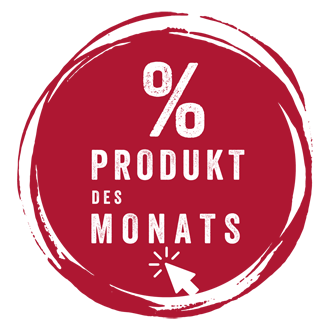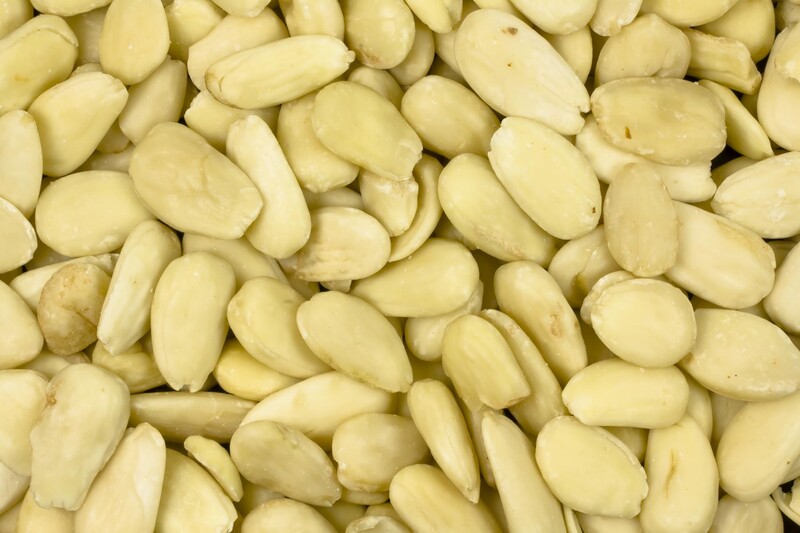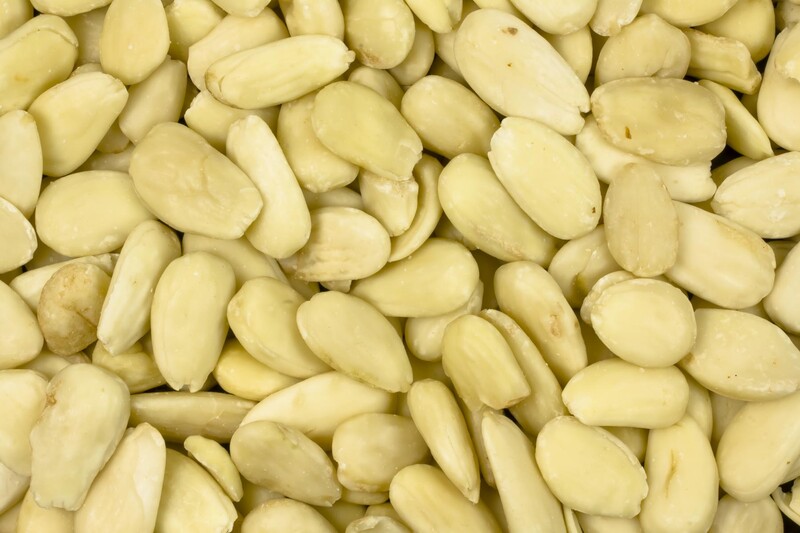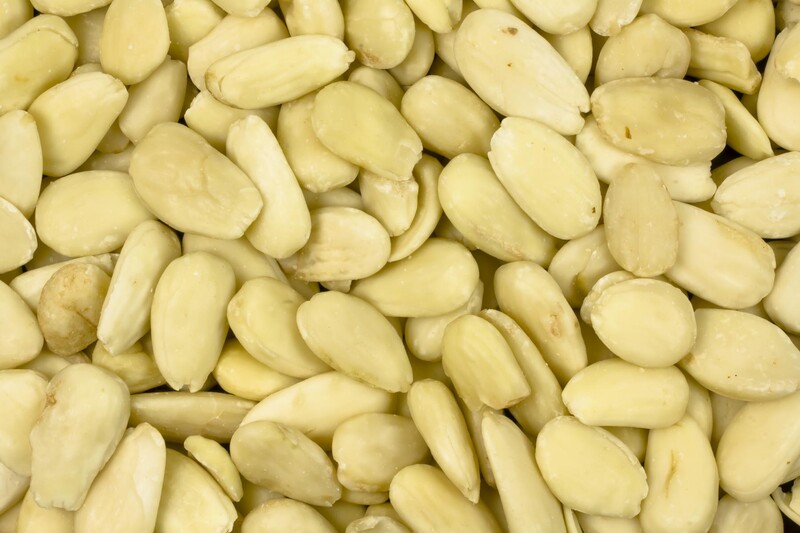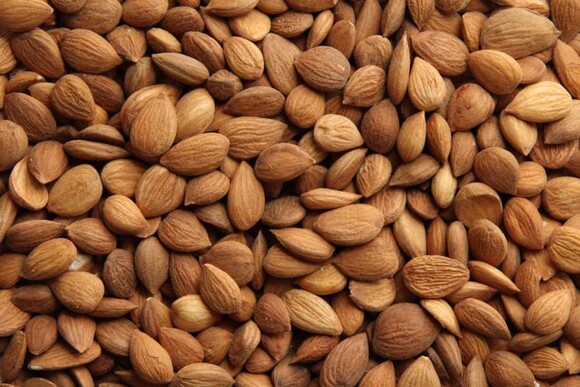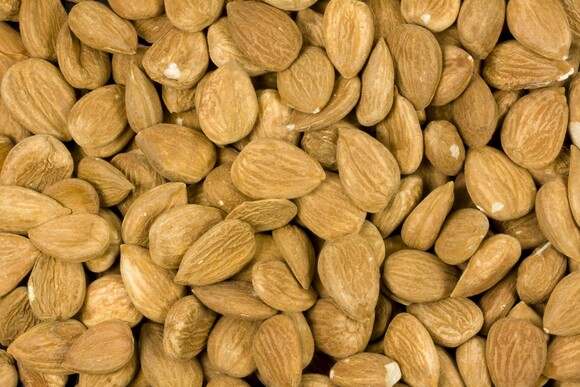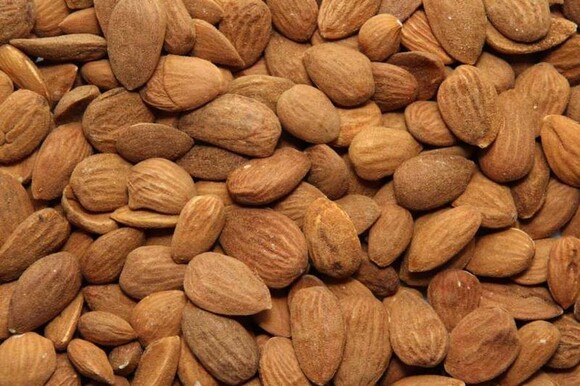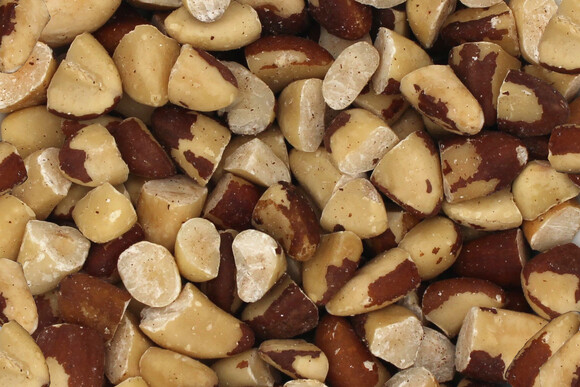Mandeln blanchiert bio
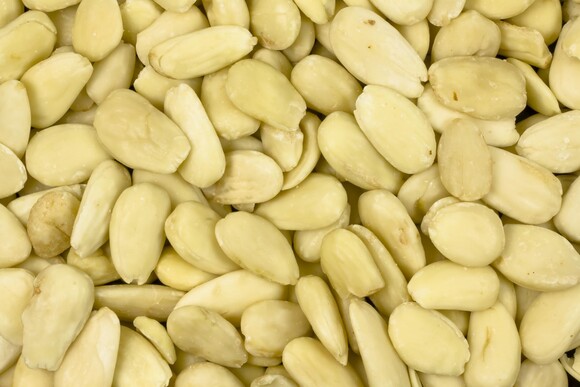
Produktbeschreibung Mandeln blanchiert bio
Wir verwenden nur europäische Mandeln! Sie schmecken deutlich nussiger und aromatischer als die Überseemandeln. Die blanchierten Mandeln sind elfenbeinfarben, die braune Haut wurde sorgfältig mittels Wasserdampf entfernt. Sie sind knackig und bissfest. Mandeln liefern viele Ballaststoffe und sind eine gute Proteinquelle. Sie eignen sich hervorragend zum Knabbern, Backen, Kochen sowie für Mischungen und als Topping und für Desserts. Braune Mandeln gibt es bei uns auch mit Haut.
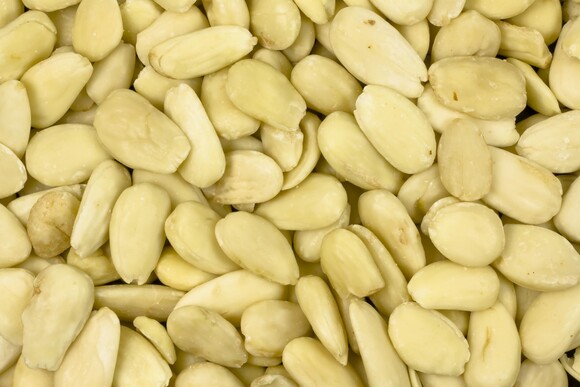
Produktbeschreibung Mandeln blanchiert bio 5kg
Wir verwenden nur europäische Mandeln! Sie schmecken deutlich nussiger und aromatischer als die Überseemandeln. Die blanchierten Mandeln sind elfenbeinfarben, die braune Haut wurde sorgfältig mittels Wasserdampf entfernt. Sie sind knackig und bissfest. Mandeln liefern viele Ballaststoffe und sind eine gute Proteinquelle. Sie eignen sich hervorragend zum Knabbern, Backen, Kochen sowie für Mischungen und als Topping und für Desserts. MAndeln gibt es bei uns auch mit Haut.
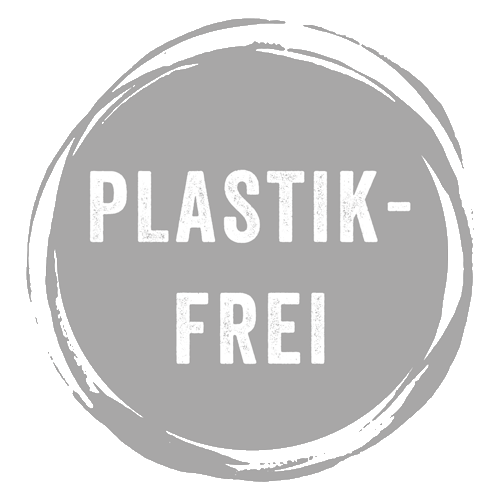
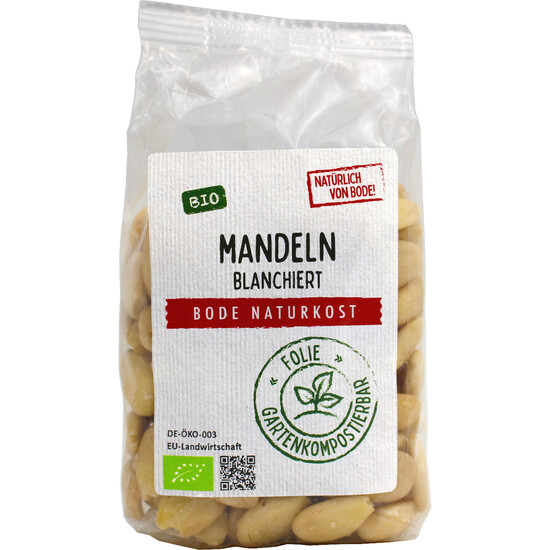
Produktbeschreibung Mandeln blanchiert bio, gartenkompostierbarer Beutel 6x200g
Wir verwenden nur europäische Mandeln! Sie schmecken deutlich nussiger und aromatischer als die Überseemandeln. Die blanchierten Mandeln sind elfenbeinfarben, die braune Haut wurde sorgfältig mittels Wasserdampf entfernt. Sie sind knackig und bissfest. Mandeln liefern viele Ballaststoffe und sind eine gute Proteinquelle. Sie eignen sich hervorragend zum Knabbern, Backen, Kochen sowie für Mischungen und als Topping und für Desserts. MAndeln gibt es bei uns auch mit Haut.
Gartenkompostierbar: Wieso ist dies umweltfreundlicher?
Bei der Folie handelt es sich um eine Mehrschichtfolie. Der Rohstoff für die Grundlage besteht aus Cellulose und wird aus Rest- und Abfallhölzern der FSC-zertifizierten Forstwirtschaft gewonnen. Die Folie setzt sich somit überwiegend aus nachwachsenden Rohstoffen zusammen, ist plastikfrei und vollständig recyclingfähig. Ihre Bestandteile sind vom TÜV als „heim- und gartenkompostierbar“ zertifiziert und sind frei von Schadstoffen und Gentechnik. In natürlicher Umgebung kompostiert die Folie in 180 Tagen zu Wasser, CO2 und Biomasse, welche in den Kreislauf zurückgeführt werden. Aktuell stellt dieses Material den höchsten Umweltstandard dar. Beim Abbau der Folie entsteht keinerlei Mikroplastik.
Da die Folie aus mehreren Schichten aufgebaut ist, schützt sie unsere Lebensmittel optimal vor äußeren Einflüssen und gewährleistet unsere hohe Produktqualität und -sicherheit.
Fazit: Sie liefert Naturdünger für Pflanzen und ist darüber hinaus unbedenklich für Mensch, Tier und Umwelt.
Das Etikett für diese Produktlinie besteht aus Papier und ist zertifiziert kompostierbar in Kompostieranlagen.
Wie entsorge ich die Verpackung?
Den Beutel einfach auf den Gartenkompost geben, dort wird er vollständig abgebaut. Das industriell kompostierbare Etikett bitte abziehen. Anschließend in der gelben Tonne oder dem Restabfall entsorgen. Aktuell gibt es kein Etikett, das für die Kompostierung im Garten zertifiziert ist.
Kein Kompost verfügbar? Tipps zur Anlage eines Komposts im Garten oder einer Kompostkiste für die Wohnung finden Sie hier. Ansonsten darf die Verpackung ausnahmslos in eine der o.g. Tonnen, denn dort wird sie schadstofffrei verbrannt. Leider verbietet die Bioabfallverordnung die Entsorgung der Verpackung in der Biotonne, da viele Sortieranlagen noch nicht dafür ausgestattet sind, die kompostierbaren Verpackungen von den konventionellen Kunststoffen zu unterscheiden und zu kompostieren. Grund dafür ist, dass den meisten Müllentsorgern der 12 Wochen dauernde Abbau der Folie zu lang ist, denn bei ihnen lagert der Kompost nur vier bis sechs Wochen. In dieser Zeit ist die Folie noch nicht ganz aufgelöst und müsste aufwendig ausgesiebt werden. Es wird an Möglichkeiten gearbeitet – hoffnungsvoll erwarten wir baldige Änderung!
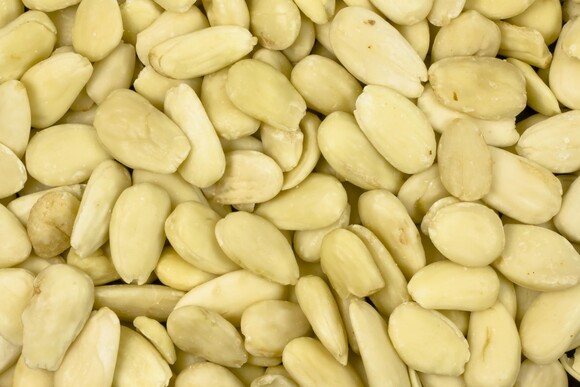
Produktbeschreibung Mandeln blanchiert bio 1kg
Wir verwenden ausschließlich europäische Mandeln! Diese schmecken deutlich nussiger und aromatischer als Mandeln aus Übersee. Blanchierte Mandeln sind elfenbeinfarben, die braune Haut wurde sorgfältig mit Wasserdampf entfernt. Sie sind knackig und bissfest. Mandeln enthalten viele Ballaststoffe und sind eine gute Proteinquelle. Sie eignen sich hervorragend zum Knabbern, Backen, Kochen sowie für Mischungen, Toppings und Desserts. Leichtes Rösten intensiviert ihr Aroma.
Zubereitung Mandeln blanchiert bio 1kg
Pur oder leicht geröstet ein Genuss zum Knabbern, Backen und Kochen.
- Großgebinde (2x)
- Kleingebinde
- Einzelgebinde
413,02 €**
Grundpreis: 16,52 €/kg**
**
Inkl. MwSt. zzgl. Versandkosten
Abhängig von der Lieferadresse kann die USt. an der Kasse variieren .
Bio
Vegan
Paketversandfähig
| Bezeichnung | Mandeln blanchiert |
| Artikel-Nr. | 22407 |
| Bio-Kontrollcode | DE-ÖKO-003 |
| Menge | 25 kg im Sack |
| Ursprung | Spanien |
| MHD | 31.05.2025 |
| Zutaten | Mandeln blanchiert* |
| *aus kontrolliert biologischem Anbau |
Durchschnittliche Nährwerte pro 100g:
| Energie | 2564 kJ / 613 kcal |
| Gesamtfett | 52,5 g |
| davon gesättigte Fettsäuren | 4,0 g |
| Kohlenhydrate | 8,7 g |
| davon Zucker | 4,6 g |
| Ballaststoffe | 9,9 g |
| Eiweiß | 21,4 g |
| Salz | 0,050 g |
91,97 €**
Grundpreis: 18,39 €/kg**
**
Inkl. MwSt. zzgl. Versandkosten
Abhängig von der Lieferadresse kann die USt. an der Kasse variieren .
Bio
Vegan
Paketversandfähig
Sofort versandfertig
| Bezeichnung | Mandeln blanchiert |
| Artikel-Nr. | 42642 |
| Bio-Kontrollcode | DE-ÖKO-003 |
| Menge | 5 kg im Karton |
| Ursprung | Spanien |
| MHD | 12.12.2025 |
| Zutaten | Mandeln blanchiert* |
| *aus kontrolliert biologischem Anbau |
Durchschnittliche Nährwerte pro 100g:
| Energie | 2564 kJ / 613 kcal |
| Gesamtfett | 52,5 g |
| davon gesättigte Fettsäuren | 4,0 g |
| Kohlenhydrate | 8,7 g |
| davon Zucker | 4,6 g |
| Ballaststoffe | 9,9 g |
| Eiweiß | 21,4 g |
| Salz | 0,050 g |
26,26 €**
Grundpreis: 21,88 €/kg**
**
Inkl. MwSt. zzgl. Versandkosten
Abhängig von der Lieferadresse kann die USt. an der Kasse variieren .
Bio
Vegan
PLASTIKFREIE UND GARTENKOMPOSTIERBARE VERPACKUNG
Paketversandfähig
Sofort versandfertig
| Bezeichnung | Mandeln blanchiert |
| Artikel-Nr. | 41671 |
| Bio-Kontrollcode | DE-ÖKO-003 |
| Menge | 6 Beutel à 200 g im Karton |
| Ursprung | Spanien |
| MHD | 07.11.2025 |
| Zutaten | Mandeln blanchiert* |
| *aus kontrolliert biologischem Anbau |
Durchschnittliche Nährwerte pro 100g:
| Energie | 2564 kJ / 613 kcal |
| Gesamtfett | 52,5 g |
| davon gesättigte Fettsäuren | 4,0 g |
| Kohlenhydrate | 8,7 g |
| davon Zucker | 4,6 g |
| Ballaststoffe | 9,9 g |
| Eiweiß | 21,4 g |
| Salz | 0,050 g |
19,57 €**
Grundpreis: 19,57 €/kg**
**
Inkl. MwSt. zzgl. Versandkosten
Abhängig von der Lieferadresse kann die USt. an der Kasse variieren .
Bio
Vegan
Paketversandfähig
Sofort versandfertig
| Bezeichnung | Mandeln blanchiert |
| Artikel-Nr. | 75043 |
| Bio-Kontrollcode | DE-ÖKO-003 |
| Menge | 1 Beutel à 1kg |
| Ursprung | Spanien |
| MHD | 24.02.2026 |
| Zutaten | Mandeln blanchiert* |
| *aus kontrolliert biologischem Anbau |
Durchschnittliche Nährwerte pro 100g:
| Energie | 2564 kJ / 613 kcal |
| Gesamtfett | 52,5 g |
| davon gesättigte Fettsäuren | 4,0 g |
| Kohlenhydrate | 8,7 g |
| davon Zucker | 4,6 g |
| Ballaststoffe | 9,9 g |
| Eiweiß | 21,4 g |
| Salz | 0,050 g |
BIO MANDELN

URSPRUNG · ANBAU · ERNTE
- Stammen ursprünglich aus Spanien und Italien.
- Warme Regionen mit trockenem Klima für den Anbau bevorzugt.
- Die Früchte wachsen am Mandelbaum.
- Erntezeit zwischen August und September.
- Die geknackten Mandeln durchlaufen eine 2-7 tägige Trocknung bevor sie sorgfältig verlesen werden.


QUALITÄT · ERNÄHRUNG
- In verschiedenen Ausführungen vorhanden (braun, blanchiert, gehobelt, gestiftet und gemahlen).
- Knackige Konsistenz mit einem leicht süßlichen Aroma.
- Hoher Fett– und Eiweißanteil, sowie reich an Mineralien und Vitaminen.
- Zum Backen, Knabbern, für Mus, für süße und herzhafte Gerichte geeignet.
UNSERE LIEFERANTEN
- Der Italienische Lieferant ist an den Hängen des Ätna ansässig (Region in Süditalien) und bietet natürliche Produkte an, die in einer unberührten Umgebung wachsen.
- Dank der klimatischen Gegebenheiten des Landes ist es möglich, viele Mandelarten zu produzieren. Wir beziehen größtenteils die Sorte „Genco“ und „Tuono“ - die Tuono Mandel enthält wenig Öl und ist sehr vielfältig in der Nutzung. Sie kann z.B. bei der Zubereitung von süßen Backwaren verwendet werden.
- Um ein zertifiziertes und hochwertiges Produkt zu garantieren, investiert der Lieferant regelmäßig in neue Maschinen zur Verarbeitung der Mandeln. Mit Hilfe von innovativer Technologie erhöht sich die Produktionskapazität und ermöglicht somit eine schnelle und sorgfältige Verarbeitung des Produkts.
- In der spanischen Extremadura gibt es fast keine Industrie, daher findet man dort eine der besten Luftqualitäten in Europa. Auch hier ist das Klima von Vorteil, da es im Winter sehr kalt und im Sommer sehr heiß ist, was sehr gute Ernten ermöglicht. Die Böden hier sind sehr gut und es gibt genug Wasser bei mehr als 1500 km2 innerer Küste.
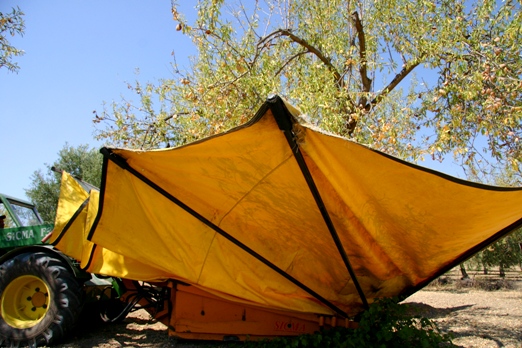

WUSSTEN SIE SCHON, DASS ...
- ...Mandeln schon seit ca. 4.000 Jahren kultiviert und hauptsächlich in den USA und im Mittelmeerraum angepflanzt werden?
- ...im Mittelmeerraum die Bäume in Weinanbaugebieten reifen, was wahrscheinlich von den Römern eingeführt wurde?
- ...während der Blütezeit die tieferliegenden Zweigtriebe entfernt bzw. gestutzt werden, um den Anteil an bitteren Mandeln zu reduzieren?
- ...Bittermandeln Mandeln der Unterart Prunus dulcis var. amara sind und sich wegen Ihres hohen Cyanidgehaltes nicht zum Rohverzehr eignen?


